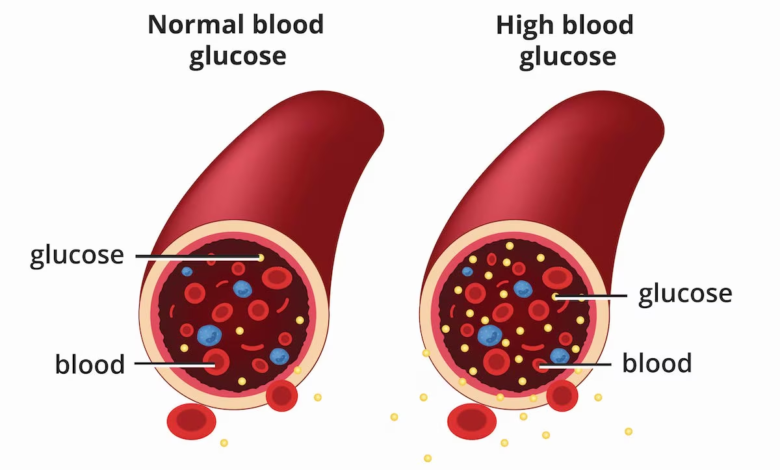Diabetes Medication Comparison: Which One Is Right for You?

Diabetes Medication Comparison: Which One Is Right for You? Living with diabetes can be challenging, but finding the right medication can make all the difference. Whether you’re newly diagnosed or have been managing your condition for years, choosing the right treatment is crucial. Diabetes medication isn’t one-size-fits-all—what works for someone else may not work for you. That’s why it’s essential to understand the different medications available and how they work.
Types of Diabetes
Before we dive into medications, let’s briefly talk about the two main types of diabetes:
Type 1 Diabetes
This type occurs when the pancreas produces little to no insulin. Insulin therapy is often necessary.
Type 2 Diabetes
More common, Type 2 is where the body doesn’t use insulin properly. It can often be managed with lifestyle changes and medications.
Why Medication Matters
Managing diabetes isn’t just about checking your blood sugar. Medication helps keep your blood glucose levels in check, which is critical for preventing serious complications like nerve damage, kidney failure, or heart disease. Consistent medication use, combined with healthy habits, can improve your quality of life and longevity.
Overview of Diabetes Medications
Oral Medications
These include pills that help manage blood sugar levels, such as Metformin and Sulfonylureas. They are often the first treatment option for people with Type 2 diabetes.
Injectable Medications
Not all diabetes treatments come in pill form. Insulin injections or newer options like GLP-1 receptor agonists are common for Type 1 diabetes and advanced cases of Type 2.
Metformin: The First-Line Defense
If you’ve been diagnosed with Type 2 diabetes, chances are your doctor prescribed Metformin. Metformin works by reducing the amount of glucose your liver produces. It also helps your body use insulin more effectively.
How Metformin Works
Metformin lowers blood sugar by decreasing liver glucose production and improving insulin sensitivity.
Common Side Effects of Metformin
While it’s generally well-tolerated, common side effects include gastrointestinal issues like diarrhea or stomach upset.
Sulfonylureas: Boosting Insulin Production
For people whose bodies don’t make enough insulin, Sulfonylureas might be prescribed. These medications stimulate the pancreas to release more insulin.
Popular Sulfonylureas
Examples include Glipizide and Glyburide, which are commonly prescribed to those struggling with glucose control.
How Sulfonylureas Help Manage Diabetes
By boosting insulin production, these medications help lower blood sugar but may increase the risk of low blood sugar (hypoglycemia).
DPP-4 Inhibitors: Enhancing Hormone Function
Another option for managing Type 2 diabetes is DPP-4 inhibitors. These drugs work by enhancing hormones that regulate blood sugar.
Examples of DPP-4 Inhibitors
Common examples include Sitagliptin (Januvia) and Saxagliptin (Onglyza).
Side Effects and Considerations
DPP-4 inhibitors are generally well-tolerated but can cause joint pain and increased risk of heart failure in some patients.
SGLT2 Inhibitors: Blocking Sugar Absorption
SGLT2 inhibitors work differently than other diabetes drugs. Instead of affecting insulin, these medications block the absorption of sugar in the kidneys, which helps remove excess glucose through urine.
How SGLT2 Inhibitors Work
They prevent your kidneys from reabsorbing glucose, causing it to be excreted.
Risks and Benefits
While they can help with weight loss, they may also cause dehydration and urinary tract infections.
GLP-1 Receptor Agonists: Dual Benefits
Looking for a medication that helps with both blood sugar control and weight loss? GLP-1 receptor agonists might be your answer. These injectable medications stimulate insulin production and slow down food digestion, helping you feel full longer.
Weight Loss and Blood Sugar Control
Medications like Liraglutide (Victoza) offer the benefit of weight management alongside glucose control.
Examples of GLP-1 Medications
Other examples include Semaglutide (Ozempic) and Dulaglutide (Trulicity).
Insulin Therapy: A Necessity for Some
Insulin is critical for Type 1 diabetes patients and may become necessary for some with Type 2 diabetes.
Types of Insulin
There are several types of insulin, from rapid-acting to long-acting, tailored to your needs.
How to Use Insulin Correctly
Proper dosage and timing are crucial to avoid highs and lows in blood sugar.
TZDs: Thiazolidinediones Explained
Thiazolidinediones (TZDs) help improve insulin sensitivity and lower blood sugar, making them a useful option for Type 2 diabetes management.
Function of TZDs
They work by making cells more sensitive to insulin, improving glucose uptake.
Common Medications in this Class
Examples include Pioglitazone (Actos) and Rosiglitazone (Avandia).
Insulin Sensitizers vs. Insulin Secretagogues
Choosing between these two classes depends on whether you need help producing more insulin (secretagogues) or using insulin more effectively (sensitizers).
Differences in Function
Insulin sensitizers improve how your body uses insulin, while secretagogues stimulate insulin production.
Which Is Right for You?
This decision is best made with your healthcare provider, who will weigh factors like your blood sugar patterns and lifestyle.
Choosing the Right Medication for Type 1 Diabetes
Insulin as the Primary Option
Type 1 diabetes requires insulin therapy because the body doesn’t produce it.
Additional Treatments for Type 1 Diabetes
Some patients may also take other medications to help manage blood sugar fluctuations.
Choosing the Right Medication for Type 2 Diabetes
For Type 2 diabetes, a combination of medications might be necessary. Metformin is often the starting point, but additional drugs may be needed for optimal control.
Combination Therapy for Better Control
Using a mix of medications—like Metformin with SGLT2 inhibitors—can provide better overall control.
Lifestyle Changes in Addition to Medication
Don’t forget: healthy eating and exercise are critical in managing Type 2 diabetes. Diabetes Medication Comparison: Which One Is Right for You?.
Conclusion: Finding the Right Balance
Choosing the right diabetes medication is a personal decision that should be made with your healthcare provider. There are many factors to consider, from the type of diabetes you have to any additional health conditions. No one medication fits all—it’s about finding the balance that works best for you.
FAQs
How do I know which diabetes medication is right for me?
You should consult with your healthcare provider. They’ll consider your blood sugar levels, lifestyle
